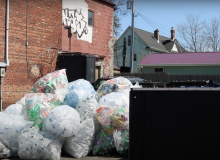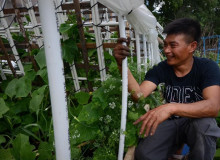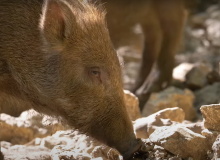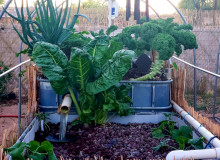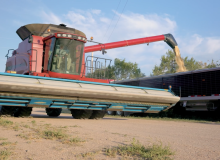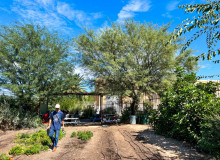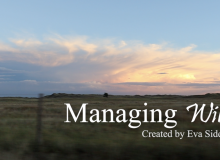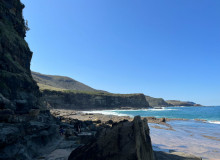Colleges & Education
Planet Forward Correspondent | SUNY Environmental Science and Forestry
In this video, learn how the New York State Bottle Bill financially incentives collectors to recycle wasted cans and bottles as well as gives less fortunate people a reliable and dignified way to earn a living.
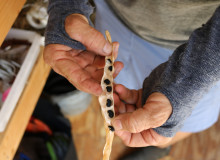
Robin Clemmons rips apart a pod of black beans, demonstrating that not many people may realize where crops, like black beans, actually come from. These bean pods need to be dried before volunteers can shell them by hand — in a days work, it's tricky to fill a plastic shopping bag. (Carter Weinhofer/Eckerd College)
Planet Forward Sr. Correspondent | Eckerd College
Food security is a growing issue, but small-scale agriculture can be a catalyst to aid in large-scale food movements.
Planet Forward Correspondent | Northwestern University
Global Garden Refugee Training Farm in Chicago makes space for refugee farmers to grow traditional fruits and vegetables, while also integrating local cultivars. One farmer shares what he grows in his farm plot.
Planet Forward Correspondent | Texas Tech University
Controlling invasive species can be costly and time-consuming. Watch this video to learn how including them on your plate could be a viable way to manage and even reduce populations.
Planet Forward Correspondent | University of Arizona
Charles Collins is a backyard gardener on a mission to change the way that the world grows food. In this audio story, Charles discusses his primary method: aquaponics.
Planet Forward Correspondent | Colorado State University, Center for Science Communication
Colorado farmer, Roy Pfaltzgraff, reflects on the challenges he faces as a farmer, how he has adapted, and the importance of consumers understanding food production.
Planet Forward Sr. Correspondent | University of Arizona
A school garden in Tucson are planting seeds of resilience within its children, sprouting reconnection to their heritage, our globe's complex food web, and the challenges of climate change.
Planet Forward Correspondent | SUNY Environmental Science and Forestry
Can eating meat save the planet? In this short documentary, ranchers and scientists at McGinley Ranch discuss regenerative ranching practices and ecological economics.
Planet Forward Correspondent | Arizona State University
From a classic Jewish deli, to a charming date-night spot, to a punk rock food truck, join me on a tour of some of San Diego's best and most sustainable vegan food restaurants.
Planet Forward Correspondent | Middlebury College
Royal National Park provides a compelling example of how national parks around the world can better preserve Indigenous cultures.

